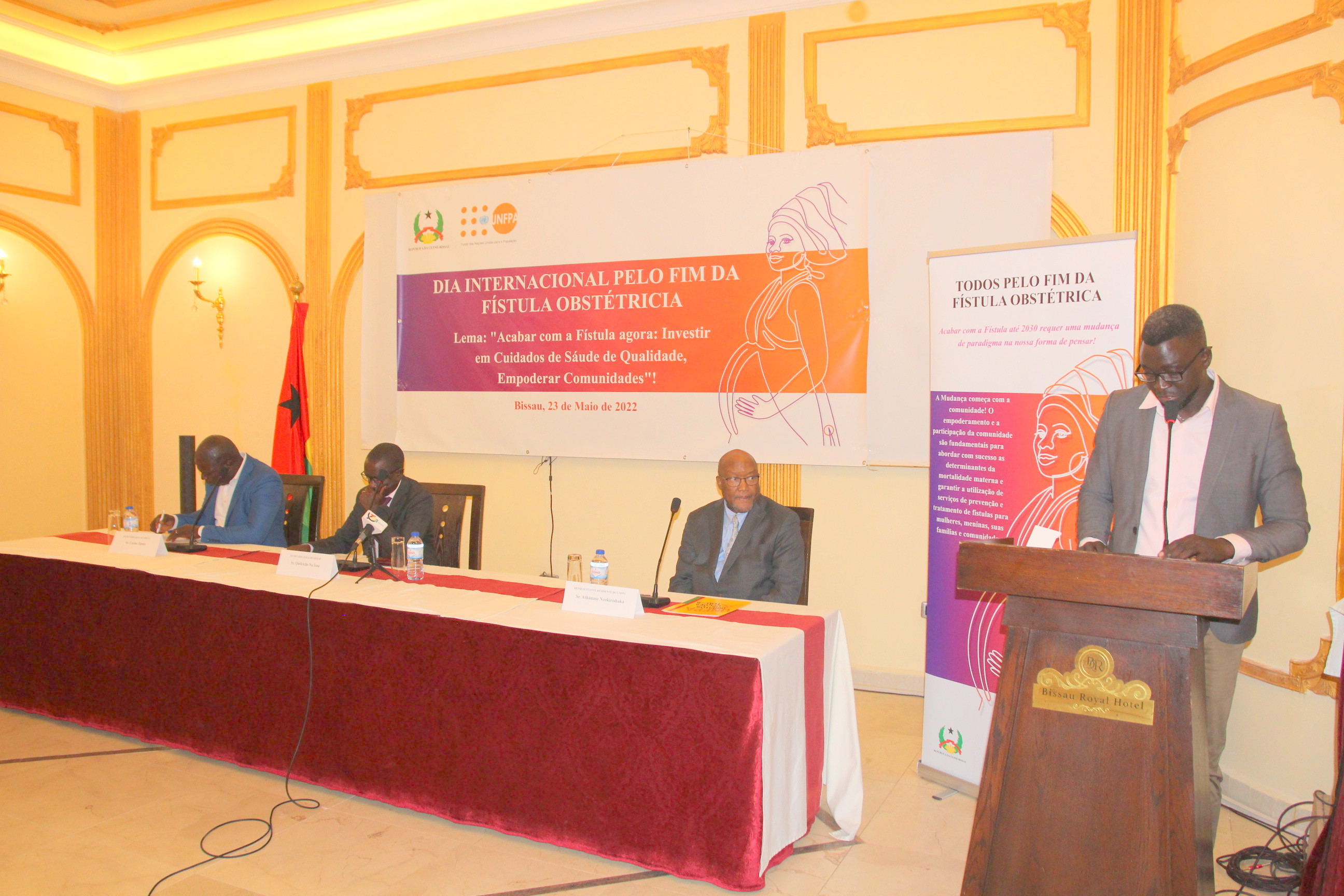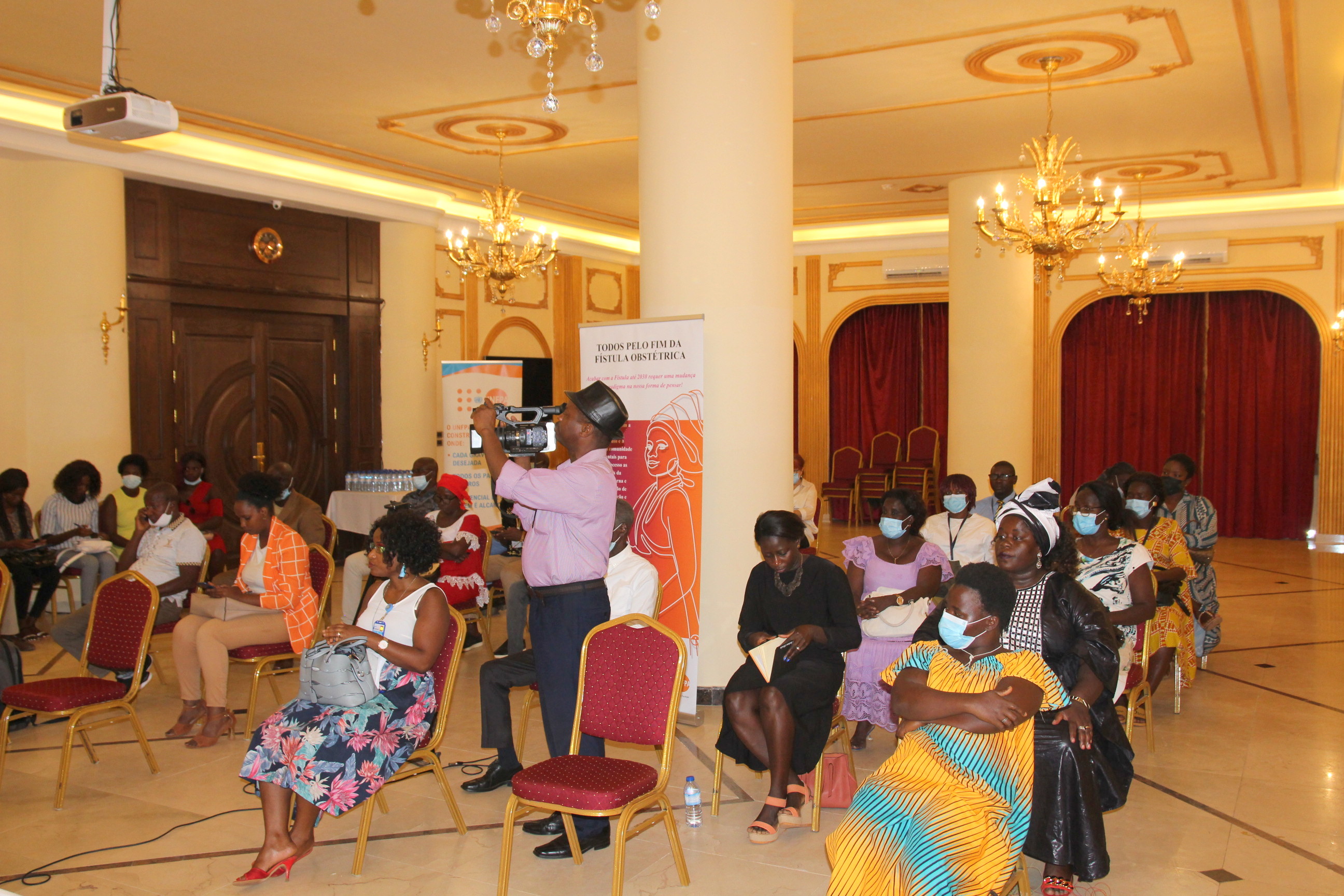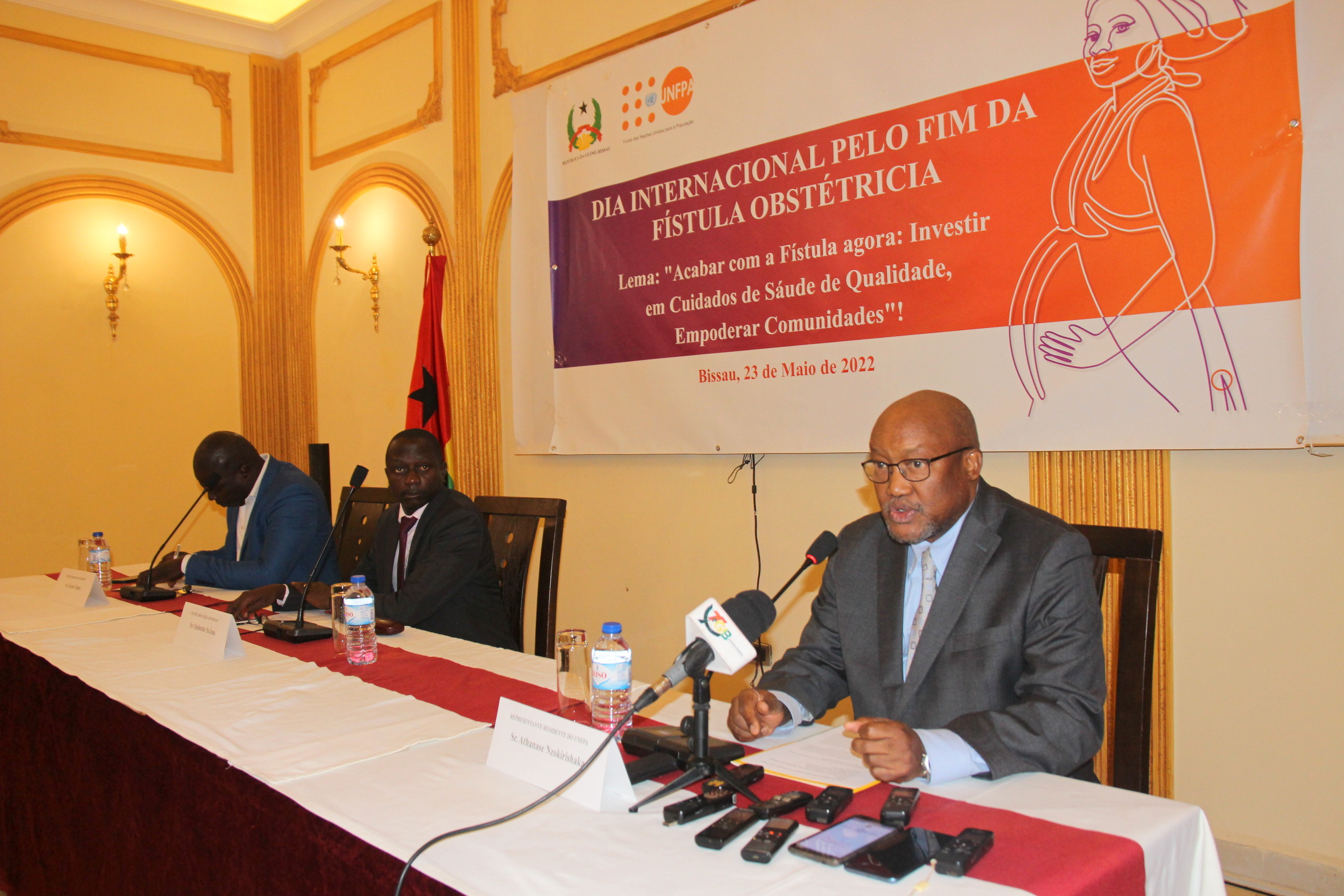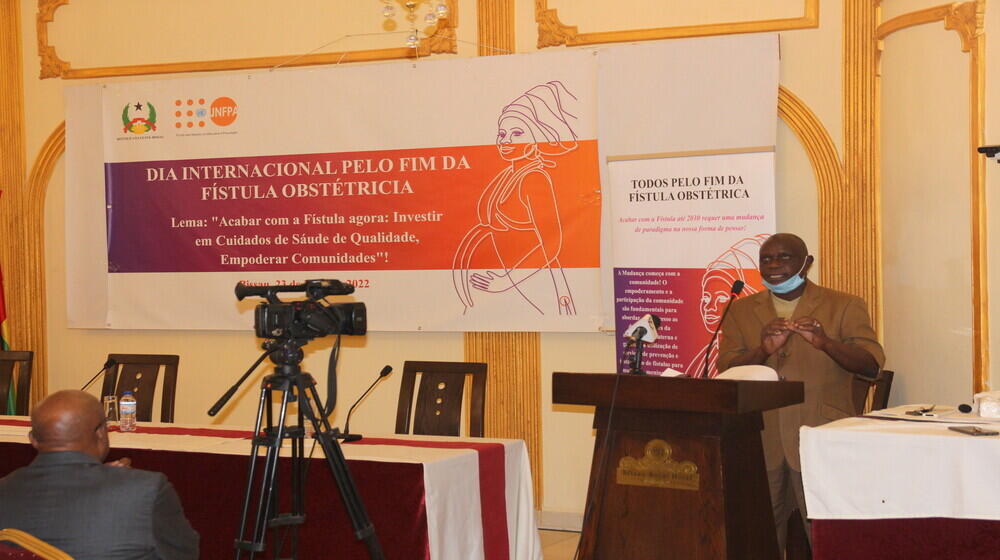Bissau 23 May 2022 -- The United Nations Population Fund and the Government of Guinea Bissau marked the International Day for the End of Obstetric Fistula, under the theme: " End Fistula now: Invest in Quality Healthcare, Empower Communities!"
The event was chaired by the Secretary-General of the Ministry of Public Health, Quiletche Na Isna, flanked by the Secretary-General of the Ministry of Women, Family and Social Cohesion, Carlos Tipote, and UNFPA Representative, Athanase Nzokirishaka.

In his speech to mark the occasion, the secretary-general of the Ministry of Women, Family and Social Cohesion warned that ending Obstetric Fistula by 2030 requires quality investments and strengthened partnerships to achieve the global goal to eradicate the disease. “The disease can be prevented by delaying the age of first pregnancy, stopping child marriage, empowerment and education of women and girls in communities”, he said.
For his part, the Secretary General of the Ministry of Public Health, Quiletche Na Isna, said that his institution was committed to working together with partners to eradicate obstetric fistula in Guinea-Bissau.
The Secretary-General said he could not be pleased with the celebration of the International Day for this disease, while women and girls continue to suffer during childbirth.
“It is a great pity that the process of childbirth, which should be the happiest moment in the lives of mothers, ends up becoming something that leaves undesirable after-effects on women”, he regretted.

Quiletche Na Isna underlined UNFPA's efforts to strengthen the health system in Guinea Bissau, saying that he conveyed the Ministry of Health's gratitude to all partners, particularly UNFPA, for its determination and fight with the Guinean authorities to eradicate obstetric fistula. “The effort made by UNFPA in the training of health technicians in the repair of obsteric fistulae and in the re-integration of victims should be acknowledged”.
Meanwhile, the representative of the United Nations Population Fund (UNFPA) in the country Athanase Nzokirishaka, said that the complexity of the disease, beyond the issue of inadequate or delayed delivery care, obstetric fistula and its consequences are a problem of human rights, gender equity and equality, poverty and culture.

“Although significant progress has been made, there is a large unmet need for treatment. More needs to be done to consolidate resources to strengthen referral systems, improve coordination mechanisms and sustain expertise and skills for fistula repair, as it is time to end obstetric fistula and address the circumstances that perpetuate it”. concluded Athanase.
In Guinea-Bissau, with UNFPA support, from 2009 to 2021, more than 300 women and girls have successfully undergone restorative surgery.


